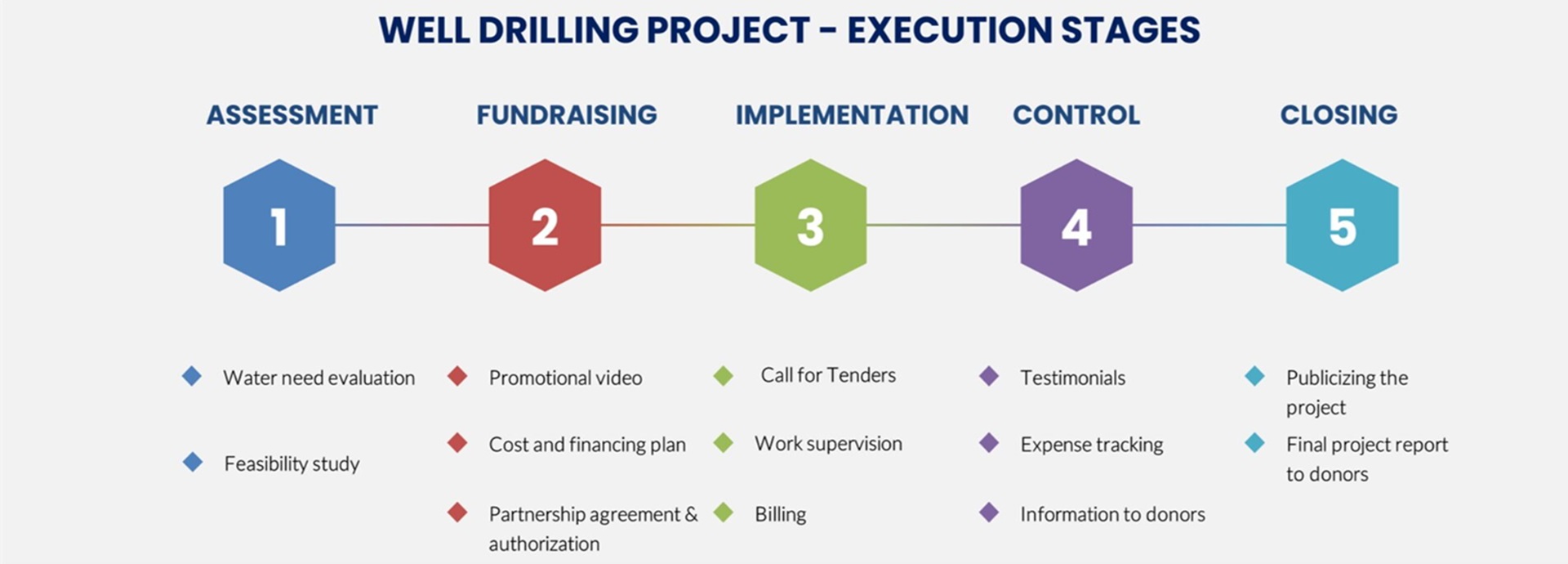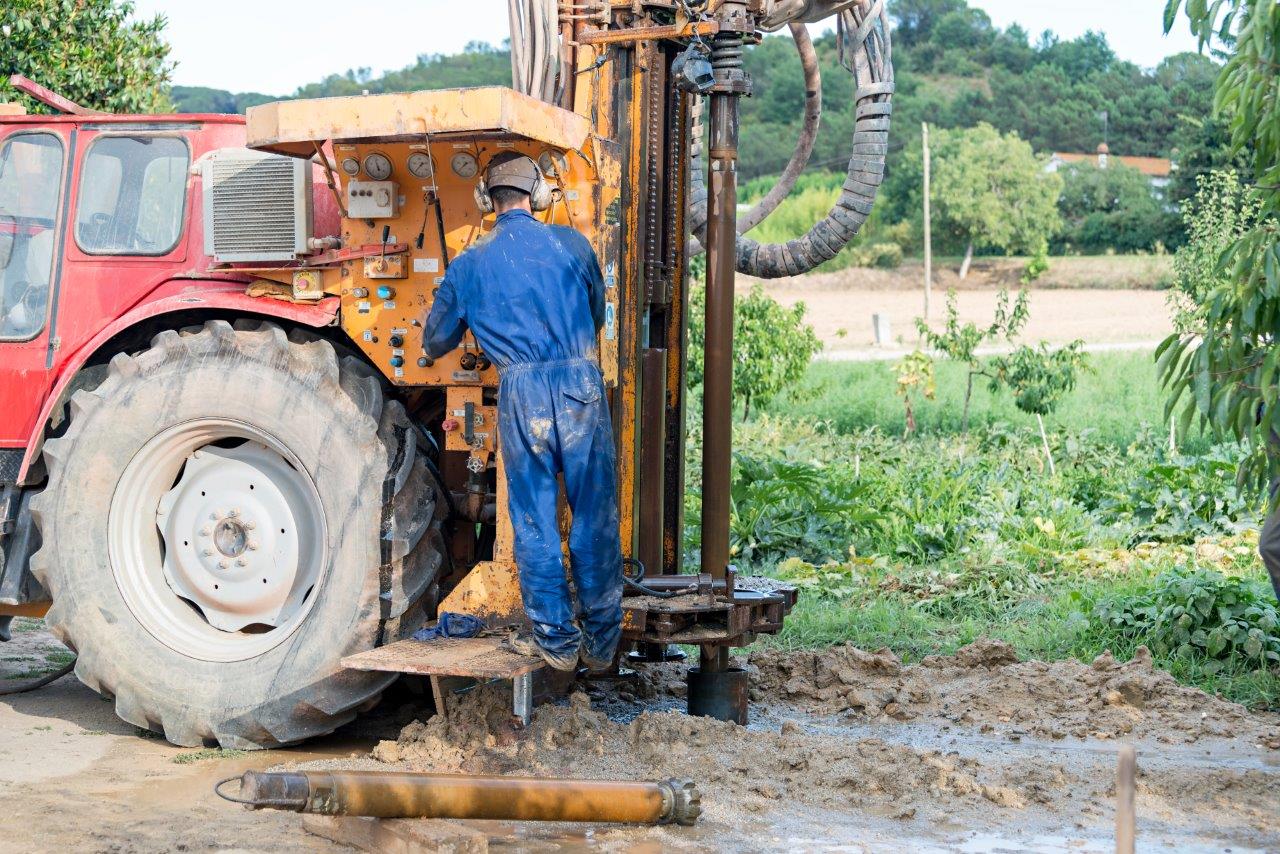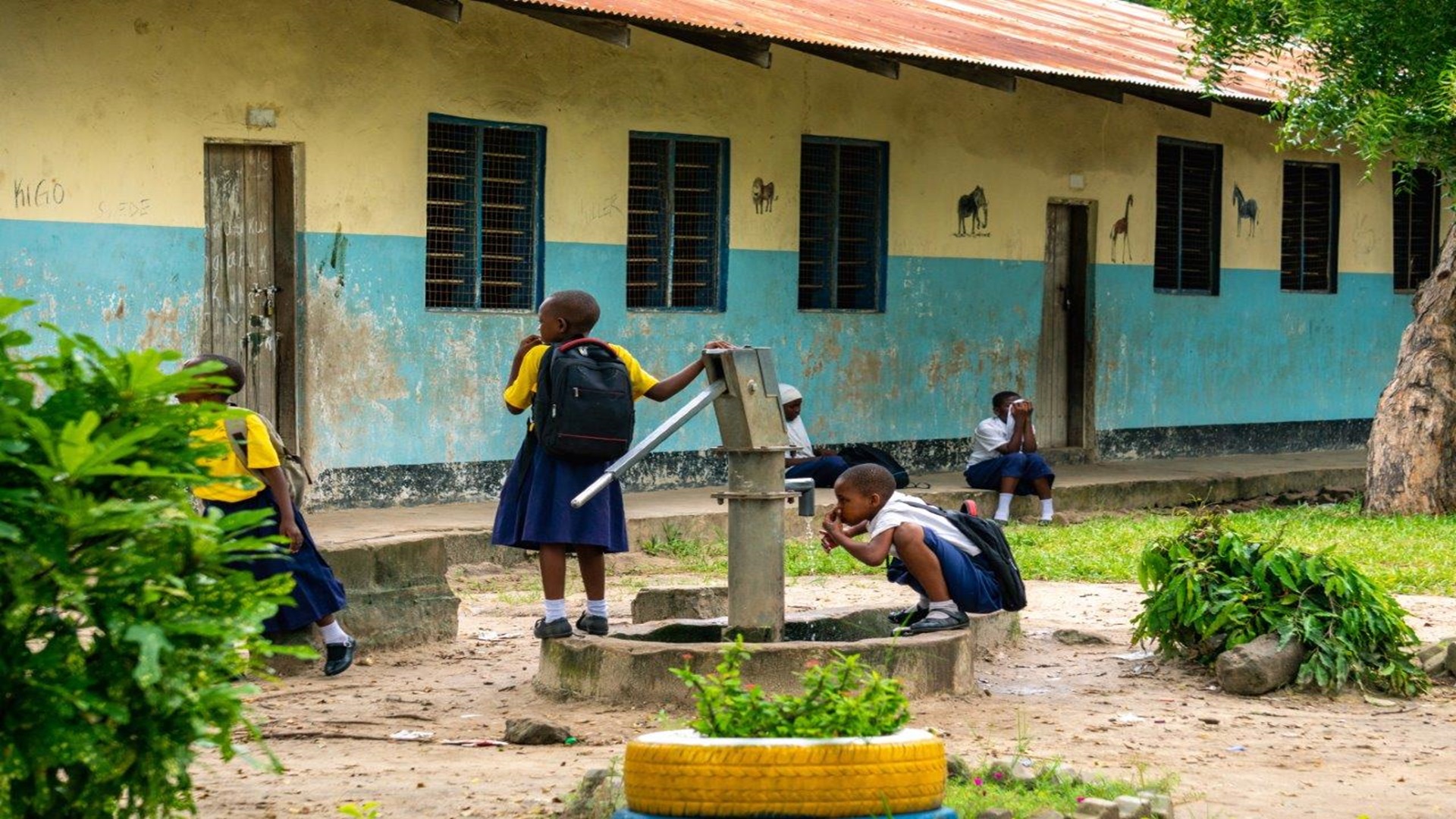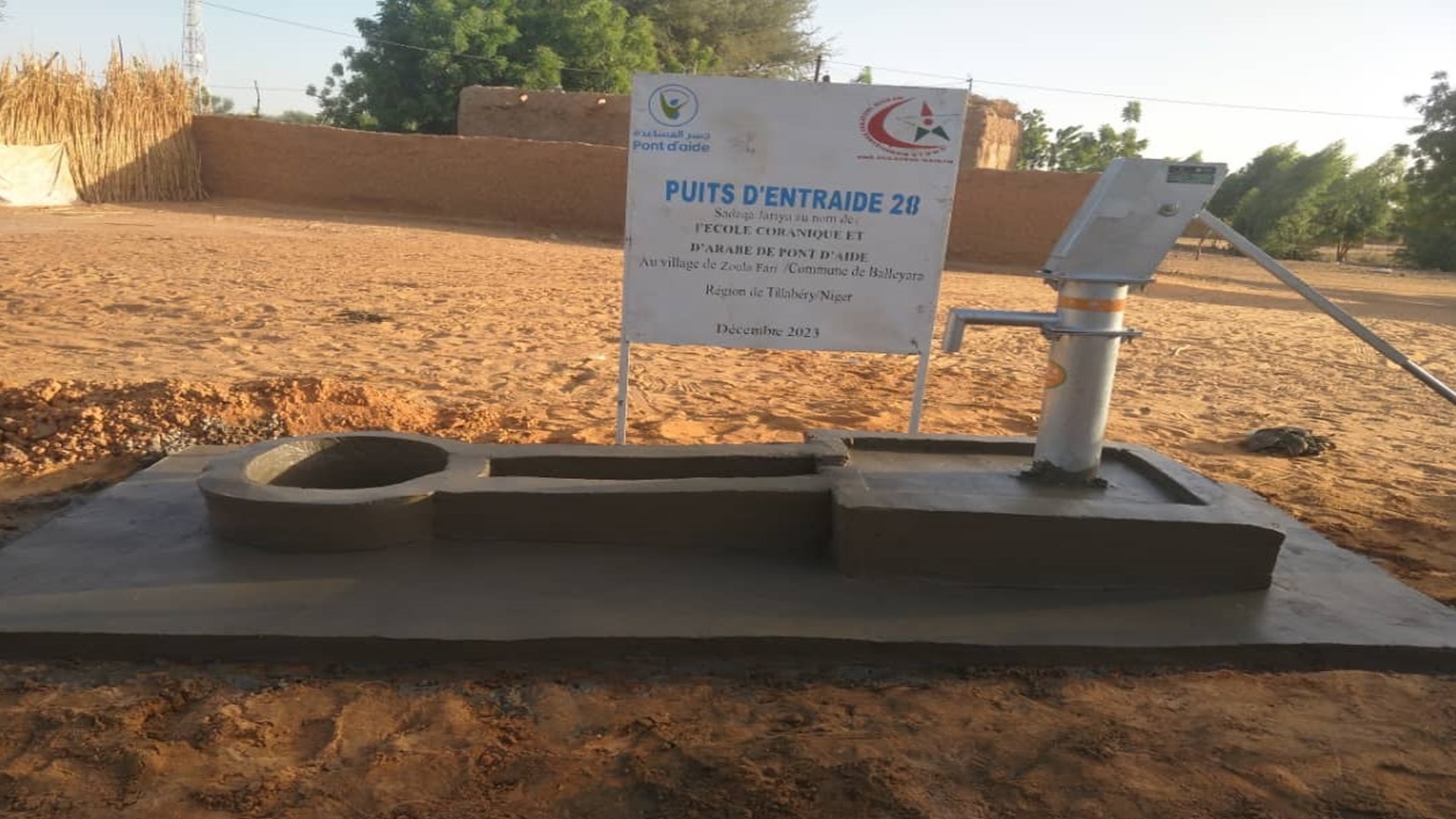
Here are some potential considerations after completing the drilling of wells and installing pumps, pipes, and water storage facilities:
- Water Quality Testing: After drilling, it's important to conduct thorough water quality testing to ensure that the water is safe for consumption. This helps in identifying any potential contaminants or issues.
- Community Involvement: Engaging with the local community is essential. Educate the community about the proper use and maintenance of the wells, and involve them in the management and sustainability of the water sources.
- Monitoring and Maintenance: Regular monitoring and maintenance of the wells are critical to ensure their long-term functionality. This includes checking for any malfunctions, repairing any damage, and preventing contamination.
- Celebrating Achievements: Depending on the scale and impact of the project, celebrating the completion of well drilling can help raise awareness, garner support, and acknowledge the efforts of those involved.
Water stands as a vital resource for every human being. Ensuring the availability of potable water translates to saving lives and enhancing the well-being of the most vulnerable populations, particularly in rural settings.
The United Nations General Assembly has recognized universal access to safe and clean drinking water as a human right since 2010. Nonetheless, nearly a billion people worldwide lack access to water services within a reasonable distance.
Through initiatives like the well-drilling projects undertaken by Aid Bridge, villagers can fulfill their essential drinking water requirements, enhance hygiene practices, and utilize water for agricultural and livestock purposes. This not only allows communities to deepen their connection to their land but also prevents migration to urban centers. Moreover, the establishment of water wells enables the provision of drinking water to schools, liberating children from the usual task of fetching water from distant locations and facilitating their attendance at school.
When water flows from a well, it instills a sense of optimism and hope throughout the entire village. Let's contribute to providing households in rural African areas with access to clean drinking water!

Drilling machine reaching successfully the groundwater. Drilling for Water. Digging for Dignity! Depending on the depth of the groundwater table, water can be accessed within a few meters or up to 300 meters. This variability is due to geological factors and local environmental conditions. Digging Deep, Changing Lives!

Access to clean and safe water is essential for the sustainable operation of schools in rural villages, facilitating hygiene standards, student and staff well-being, and overall educational efficiency.

Successful drilling of a well, providing access to clean water in regions facing water scarcity. Hope springs from every well!
Importance of safe and clean water, food and basic education.
Safe and clean water, food and basic education are fundamental pillars that uphold the well-being and development of individuals and societies. Each plays a pivotal role in shaping a healthy, prosperous, and sustainable future.
Firstly, the provision of safe and clean water. Access to clean water is a basic human need and a key determinant of health. Contaminated water sources can lead to waterborne diseases, undermining the well-being of individuals and placing a burden on healthcare systems. Clean water is not only crucial for drinking but also for sanitation and hygiene practices. In communities where safe water is readily available, there is a marked improvement in public health, with reduced instances of waterborne illnesses, improved sanitation, and an overall enhancement of living conditions.
In essence, the triad of basic education, food, and safe, clean water forms a symbiotic relationship that fosters human development and societal progress. When these necessities are ensured, individuals are better equipped to lead fulfilling lives, contribute meaningfully to society, and participate in the ongoing global challenges. Governments, organizations, and individuals must recognize the interconnectedness of these elements and work collaboratively to create environments where everyone has the opportunity to thrive. By prioritizing basic education, food security, and access to clean water, we pave the way for a more equitable, sustainable, and prosperous world for generations to come.
Secondly, the significance of food cannot be overstated. Access to nutritious and sufficient food is a fundamental human right and a prerequisite for health and well-being. Adequate nutrition is essential for physical and cognitive development, particularly in children. Moreover, food security contributes to societal stability by addressing issues of poverty and reducing the likelihood of conflicts related to resource scarcity. In communities where individuals have reliable access to nutritious food, there is a greater potential for productivity, economic resilience, and social harmony.
Equally basic education serves as the cornerstone of personal and societal advancement. It empowers individuals with knowledge, critical thinking skills, and the ability to contribute meaningfully to their communities. Education is not merely about acquiring facts; it is a transformative force that opens doors to opportunities, fosters innovation and builds a foundation for lifelong learning. In societies where basic education is accessible to all, there is a higher likelihood of economic growth, reduced inequality, and improved overall quality of life.
